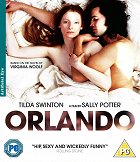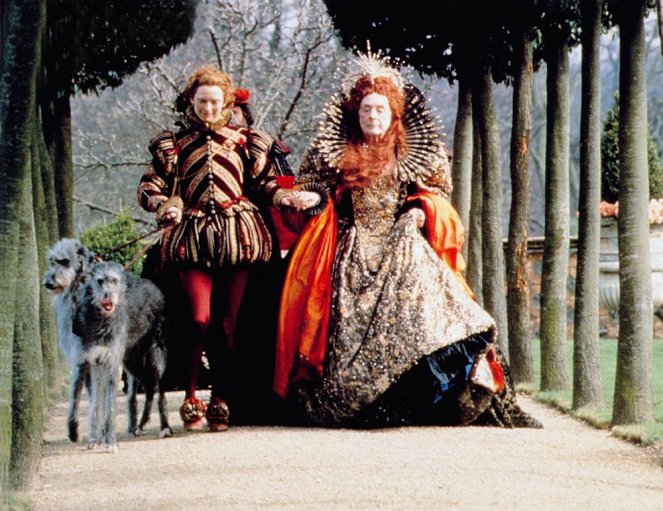Reżyseria:
Sally PotterScenariusz:
Sally PotterZdjęcia:
Aleksey RodionovObsada:
Tilda Swinton, Toby Jones, Dudley Sutton, Toby Stephens, Viktor Stepanov, Heathcote Williams, Lothaire Bluteau, John Wood, Billy Zane, Thom Hoffman (więcej)Opisy(1)
Swinton stars as Orlando, an English nobleman who defies the law of nature with surprising results. Immortal and highly imaginative, he undergoes a series of extraordinary transformations which humorously and hauntingly illustrate the eternal war between the sexes. (oficjalny tekst dystrybutora)
Recenzje (3)
Even though Orlando adheres to the basic ideas of the novella upon which it is based and is primarily an engaging meditation on human mortality and sexual identity as a form of performance, Potter does not just slavishly transcribe the original text. She also added motivation for the protagonist’s transformation, altered the conclusion, wrote in the character of the singing angel and took the game of gender roles even further by letting Swinton play both a man and a woman. In addition to that, she decided to emphasise the central themes of postmodern philosophy, which were already present in their embryonic form in the book (nonlinear narration, direct addressing of the reader, pointing out the instability of identities). ___ The idea that men and women do not act according to their biological make-up, but rather play roles assigned to them by society (which was a ground-breaking concept at the time of the novella’s publication), is expressed in the film not only verbally, but also through the ironic use of costumes, gestures, sets and the characters’ movements, which change according to the plot development. Each epoch is characterised by a certain overarching theme and artistic style, as well as by a specific colour palette. ___ Potter uses opulent surfaces to emphasise the premise that our lives are shaped primarily by our appearance. Through sophisticated cinematic methods, she examines the ability of art and of people to transcend categories that simultaneously define and limit our life experience. ___ Tilda Swinton’s glances at the camera replace Woolf’s highly communicative narrator and, at the same time, make us aware of the discrepancy between Orlando and her environment, which does not understand her. The film thus not only systematically relativises the way we understand gender and identity, but also subverts our viewing expectations and changes the way we usually watch films. ___ Both the book and the film not only thematicise sexual ambivalence, but also show how other meanings can be attributed to cultural heritage in new contexts. Texts are rich in meaning, history is unstable. So is human identity. Orlando is, among other things, a film about reading and writing, based on a novella about reading and writing. Like Virginia Woolf’s original work, it poses the essential question of how to write and read truthfully to oneself. 80%
()
“There could be no doubt about his sex ...” But what is gender, how does it predetermine or limit the lives of individuals and how does it predetermine how an individual’s surroundings treat him or her? All of these questions are contained within this introductory line and the entire film offers a long chain of sequences or rather stimuli on the same topic. Though in the case of the path toward gender equality in the sense of roles and, even better, the dissolution of the very concept of gender the goal is more important than the difficult pilgrimage to reach it, in the case of the film version of Orlando, the journey itself proves to be of key importance not only for enthralling viewers, but filling them with enthusiasm for these ideas. This playfully serious and caustically absurd game of identities, desires and motivations in an absorbing, lavishly baroque fresco serves its numerous stimuli on a platter of permanent aesthetic ecstasy, in the middle of which looms a monument to the acting qualities of Tilda Swinton.
()
A work hardly comparable to anything else I've ever seen. The tale about the immortal woman/guy makes it difficult to connect to the main character, but it does not lack likeable humour, insight and a lot of interesting ideas that directly make you think (the main character often looks into the camera and addresses the audience). Tilda Swinton was born for this role, and Sally Potter leads this feminist costume masquerade with admirable formal eloquence and stability. I recommend it.
()

